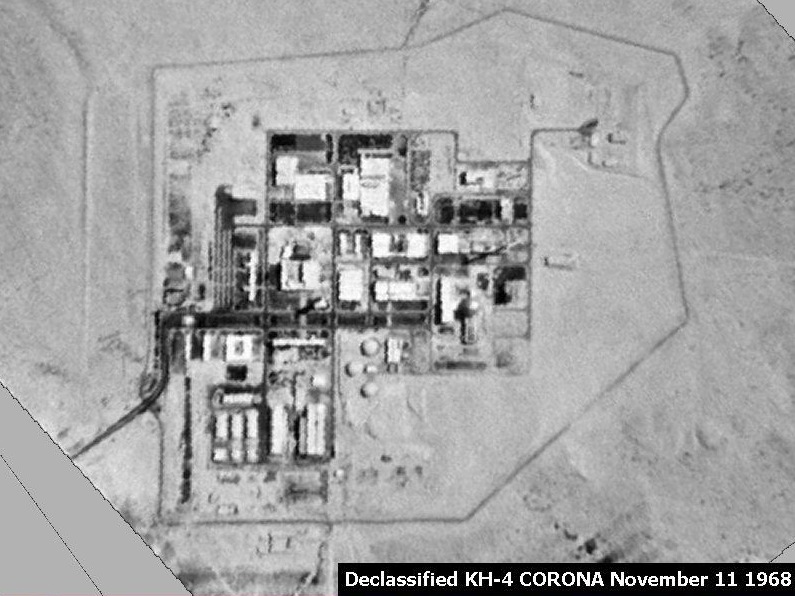Nuclear Weapons 687 - Estimates Of Israel's Nuclear Arsenal
dimona_(israel) (1).jpg

For decades, the international community has been confident that Israel has nuclear warhead and the means to deliver them. Up until this year, Israel has refused to make any public statement with respect to the existence of an Israeli nuclear arsenal.
The Stockholm International Peace Research Institute (SIPRI) is an international watchdog organization. It focuses on conflicts, the international arms trade and nuclear proliferation. The ISPRI issued a new report Monday that stated that Israel has an estimated one hundred nuclear warheads. This is more than earlier estimates.
The SIPRI report gives the following information about Israel’s nuclear arsenal. Israel supposedly has thirty gravity bombs which can be dropped from Israeli fighter jets. They have another fifty warheads that can be delivered by land-based ballistic missiles. They also have an unknown number of nuclear-armed, sea-launched cruise missiles. These submarine launched missiles would give Israel a retaliatory capacity in case Israel was attacked first.
The SIPRI report estimates that Israel possess between eighty and ninety nuclear weapons. The SIPRI report was unable to verify these estimates with the Israeli government. It has a long standing policy of refusing to comment on their nuclear weapons program. Israel describes this policy as “nuclear ambiguity.” The U.S. Nuclear Threat Initiative has estimated that Israel has refined enough weapons-grade plutonium to construct between one hundred and two hundred nuclear warheads. Of the nine nations with nuclear arsenals, Israel is one of five who have never signed the Treaty on the Non-Proliferation of Nuclear Weapons. This is an international treaty dedicated to stopping the spread of nuclear weapons and achieving global nuclear disarmament.
Benjamin Netanyahu is the Prime Minister of Israel. Last August, he threated to wipe out Israel’s enemies with nuclear weapons. Since then, Netanyahu and allies in the U.S. accused Iran of working on the development of nuclear weapons. Intelligence agencies in the U.S. and Israel have no evidence that Iran has any such weapons program.
New information has also emerged about work at the Shimon Peres Negev Nuclear Research Center, which houses the Dimona nuclear reactor. There are concerns about the safety of the Dimona reactor. Last week, there were arguments in an Israeli court that claimed that radioactive waste has leaked from the reactor on more than one occasion. The plaintiffs in the case say that information about these leaks was kept from some of the employees. One of those employees is suing the facility because he believes that these leaks gave him cancer.
The trial over problems at Dimona have focused more attention on the aging reactor. It was estimated in an internal Israeli document several years ago that the Dimona reactor has over fifteen hundred known defects. There have been reports that the Israeli government has no intention of fixing or replacing the core of the Dimon reactor.
The facility housing the reactor is only thirty miles south of Tel Aviv, the capital of Israel. This is a serious threat to citizens of Israel but the greatest threat is, of course, to the citizens of Dimona. They are predominantly Jews from Northern Africa who are regularly discriminated against by the government. There are also Palestinian villages in the area that are under threat.